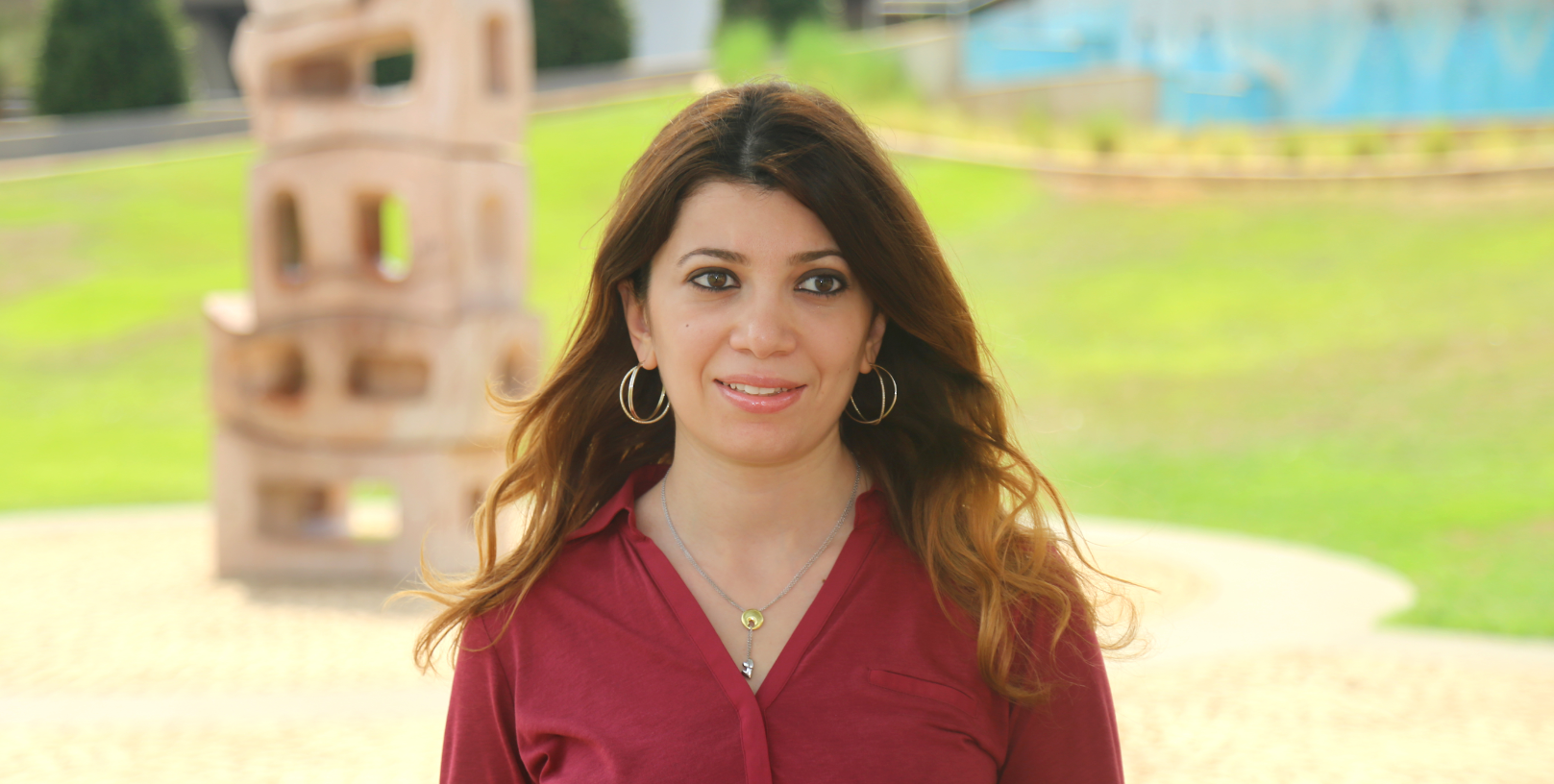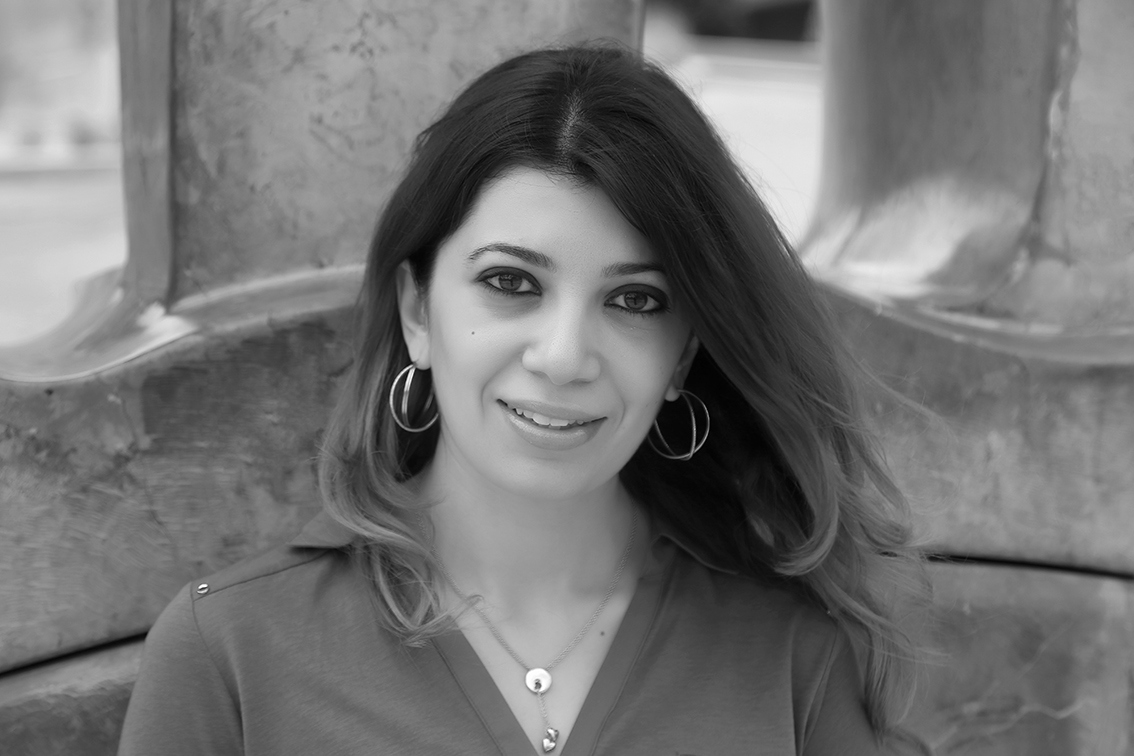Mona Itani: “I have a message to give the youth of Lebanon and the Arab world”
14 July 2020 Lucia Conti

by Lucia Conti
Mona Itani is an engineer, a lecturer at the American University of Beirut, and the Founder of Riyada for Social Innovation, a social enterprise that educates youth to develop tech solutions to social problems.
You are an entrepreneur, an academic, and a tech expert. How did your journey start and what was it like?
As an engineer, I worked in telecommunications at first but I was always interested in business. I did my master in engineering management, took a course, and was placed in a group of entrepreneurs, some of which were Lebanese female role models.
But it was only after I joined academia that I started digging deeper into the entrepreneurship ecosystem.
Let’s talk about Riyada for Social Innovation. What is social innovation to you and why are women important in this process?
I will start with the second question. It frustrates me that we still need initiatives to integrate women into society because women make up half of society and to this day we’re still talking about their rights, it is shameful. Women have to contribute equally in every field, including social innovation.
Social innovation means putting social good first, to keep making positive progress. If we just keep a profit-oriented mindset the result won’t be long-lasting.
In your Ph.D. thesis, you talked about women tech-entrepreneurs in Lebanon as actors who “disrupted the traditional culture and economy”. What did you mean by that?
When I started interviewing these women, I saw what they were really doing. They were taking action to be heard, they had a vision of what Lebanon should be, and by using high-tech they were determined to achieve more than profit. They had the bigger purpose to change society and in this sense, they were disrupting it.
 What are the main challenges for women's empowerment today?
What are the main challenges for women's empowerment today?
I think that mainstream empowerment initiatives always focus on the traditional areas of the so-called “feminine activities” such as embroidery or catering. But if we still encourage this kind of job distribution, women will never access other jobs.
Another thing that frustrates me, is that a lot of these empowering initiatives are for women-only. We have to show the whole world how women are succeeding and showcase their success in mixed panels.
That’s why I opened up my activities to all genders. But I also make sure, and this is what I call “indirect empowerment factor”, that at least half the people in my programs are women. I just don’t advertise it, I want it to happen and unconsciously wipe off the old stereotypes about women in technology.
You are an ambassador for UN Global Compact Network Lebanon. What’s your mission?
We’re talking about responsible business, that should drive private and corporate sectors to care about society, the planet, and SDGs. My vision is entirely aligned with the UN Global Compact Network’s mission.
I have also been a training facilitator and a mentor in their latest young social innovators program, which was tailor-made for the employees of the corporates that were part of the network. We ended this program a few weeks ago and we shared our experiences at the International Forum.
The GC Network in Lebanon is doing a great job and that’s why I see myself being part of their bigger family.
You founded Girls got IT, which has trained more than 2800 girls so far. Did you expect the initiative to be this successful?
Definitely! We were determined to reach many high school girls in Lebanon.
When we started all of us worked so hard for several months, completely for free. After the first huge success, we attracted the attention of UNICEF in Lebanon, that pitched in for the following editions.
We also trained a group of Syrian refugees. We needed to offer them tailored workshops that they could understand, and we had to find Arabic-speaking trainers, although tech-related subjects are usually taught in English. It was challenging but also very rewarding and we were covered by the NY Times.
After that, we had several other editions, on the whole Lebanese territory. I am very proud of it.
What are you working on, at the moment, and what do you hope to achieve?
I have a message to give the youth of Lebanon and the Arab world: you can use technology and innovation to solve the social problems we are facing.
Thankfully, we have influenced many young people to become a more innovative version of themselves. This is just the beginning: they are continuing this journey and so am I. My goal is to create a new generation of social innovators. We need change and therefore we need this generation to acquire change-making as a skill so that they can implement it when they grow more powerful.
Mona Itani will be a featured speaker at UNIDO’s Spotlight Session on 16 July, as part of the international online conference “Women in Industry and Innovation”.